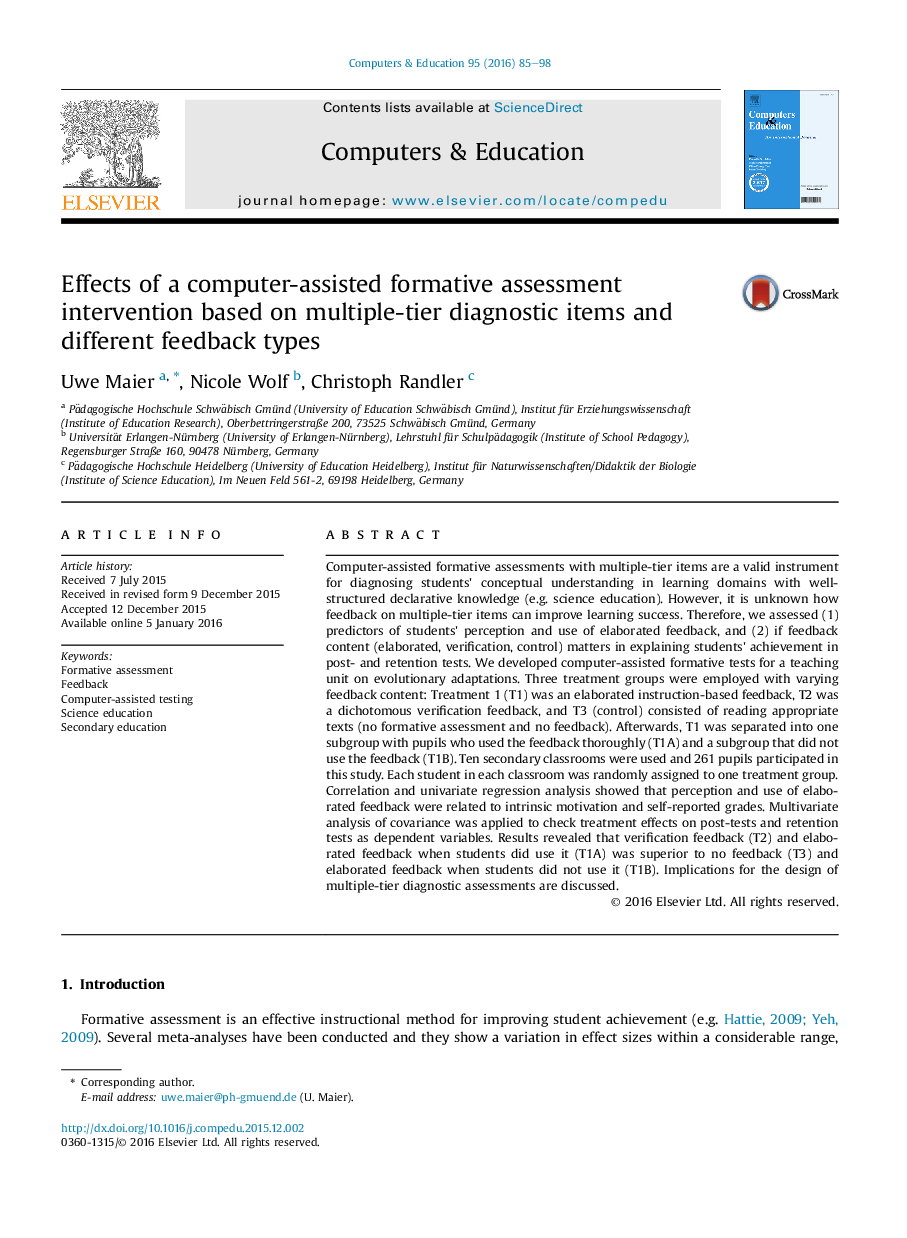| Article ID | Journal | Published Year | Pages | File Type |
|---|---|---|---|---|
| 6834899 | Computers & Education | 2016 | 14 Pages |
Abstract
Computer-assisted formative assessments with multiple-tier items are a valid instrument for diagnosing students' conceptual understanding in learning domains with well-structured declarative knowledge (e.g. science education). However, it is unknown how feedback on multiple-tier items can improve learning success. Therefore, we assessed (1) predictors of students' perception and use of elaborated feedback, and (2) if feedback content (elaborated, verification, control) matters in explaining students' achievement in post- and retention tests. We developed computer-assisted formative tests for a teaching unit on evolutionary adaptations. Three treatment groups were employed with varying feedback content: Treatment 1 (T1) was an elaborated instruction-based feedback, T2 was a dichotomous verification feedback, and T3 (control) consisted of reading appropriate texts (no formative assessment and no feedback). Afterwards, T1 was separated into one subgroup with pupils who used the feedback thoroughly (T1A) and a subgroup that did not use the feedback (T1B). Ten secondary classrooms were used and 261 pupils participated in this study. Each student in each classroom was randomly assigned to one treatment group. Correlation and univariate regression analysis showed that perception and use of elaborated feedback were related to intrinsic motivation and self-reported grades. Multivariate analysis of covariance was applied to check treatment effects on post-tests and retention tests as dependent variables. Results revealed that verification feedback (T2) and elaborated feedback when students did use it (T1A) was superior to no feedback (T3) and elaborated feedback when students did not use it (T1B). Implications for the design of multiple-tier diagnostic assessments are discussed.
Related Topics
Social Sciences and Humanities
Social Sciences
Education
Authors
Uwe Maier, Nicole Wolf, Christoph Randler,
